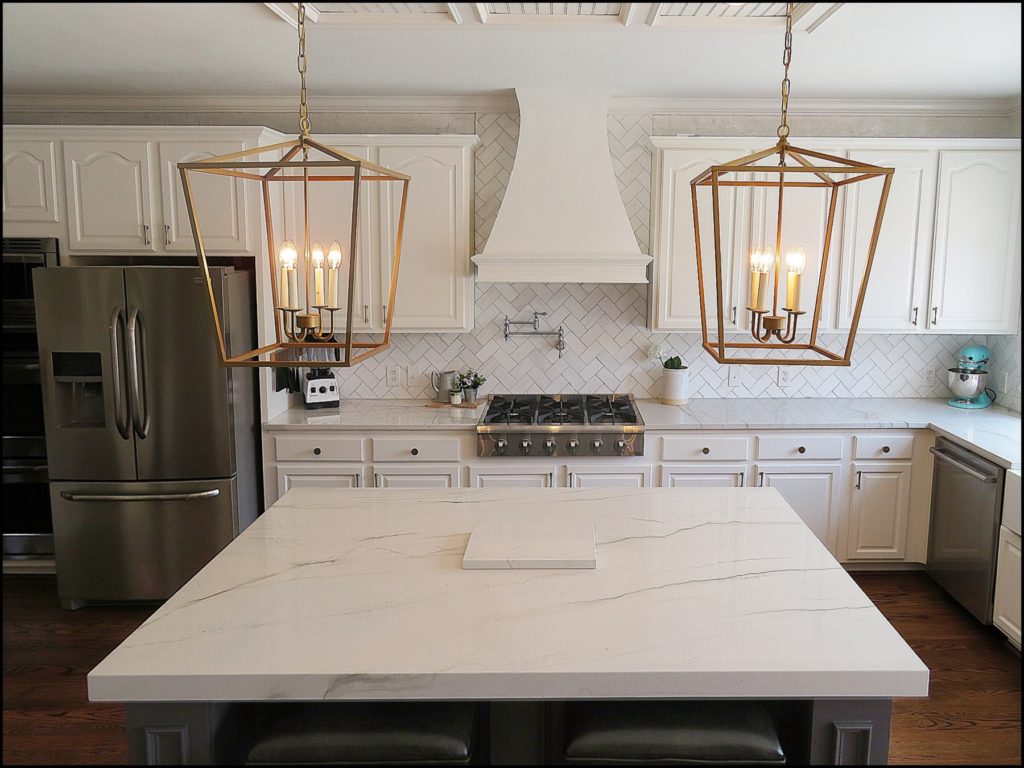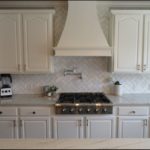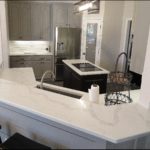QUARTZ COUNTERTOPS
Quartz countertops are made from engineered material made from natural ground quartz and polymer resins. This manufacturing process creates an ultra-durable countertop that is as close to indestructible as you can get. Engineered quartz countertops resist corrosion and stains from household cleaning solutions, liquids, and oils. However, high heat can still damage quartz, and it can become discolored when exposed to direct sunlight for too long. The product can be used in areas like shower enclosures, backsplashes, and walls without visible seams (depending on color and design). It is highly recommended that you get your quartz countertops fabricated and installed by a certified shop. The low maintenance the product offers is a big plus it is not as porous and is made with resin mixed with ground quartz, engineered quartz countertops do not need to be sealed. Still, quartz does benefit from routine cleaning with a stone-safe cleaning product and a non-abrasive. We also offer CesarStone, Silestone, Cambria, VicoStone, Color Quartz, Wilsonart, and other brands.


























